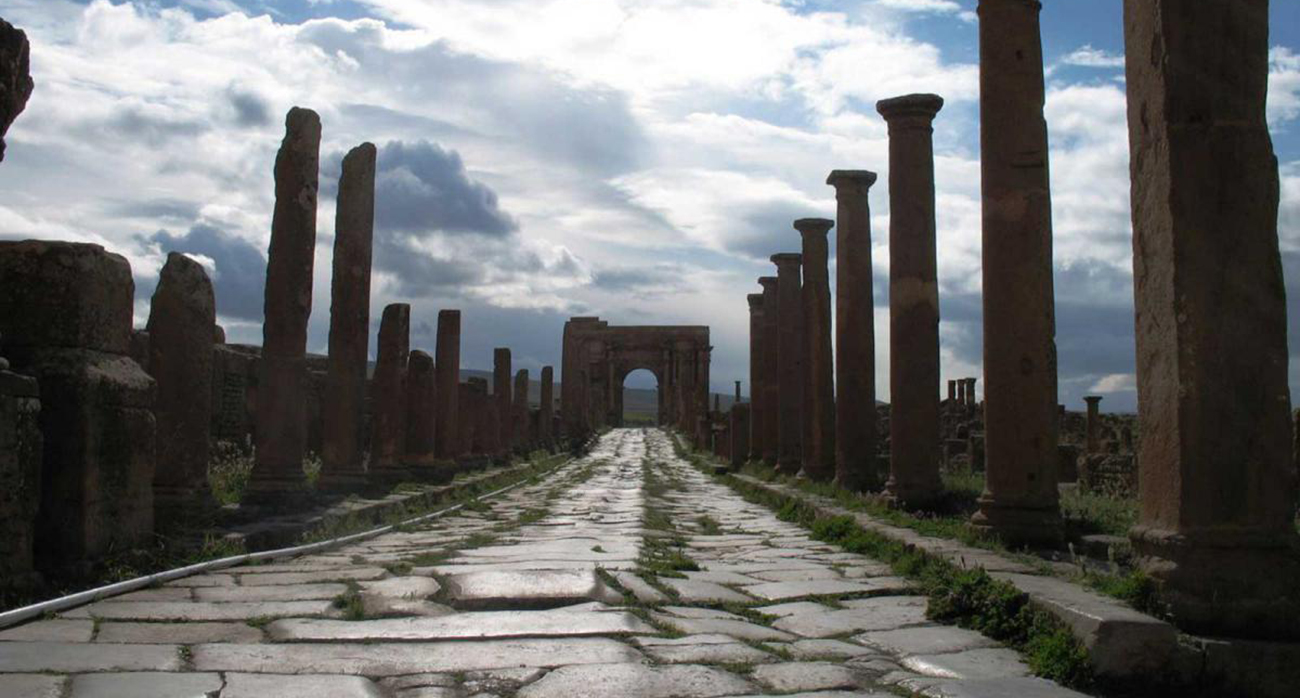BOETHIUS: "DE CONSOLATIONE PHILOSOPHIAE": BOOK I. Introduction: Having just translated a passage from St. Augustine of Hippo, Sabidius has also realised that he has similarly failed to honour, in his translations, the works of the almost equally renowned Anicius Manlius Severinus Boethius (consul in 510 A.D.), whose great work, "The Consolation of Philosophy", which he wrote in prison in 524 A.D., while awaiting the death penalty, was one of the most admired and frequently read books in Late Antiquity and the Middle Ages. Sabidius has therefore put this shortcoming to...
Augustine: “De Civitae Dei”: Book IV
ST. AUGUSTINE: DE CIVITATE DEI CONTRA PAGANOS ("ON THE CITY OF GOD AGAINST THE PAGANS"): BOOK IV. Introduction: The item translated below is the first extract from the works of St. Augustine of Hippo that Sabidius has translated. This is partly because, with the exception of some selected letters written by Augustine, none of his writings, including both his famous "Confessions" and "City of God", are included in the texts of the Perseus website maintained by Tufts University, upon which Sabidius has so often depended for support, and partly, perhaps,...
Seneca: De Clementia (“On Mercy”)
Introduction: Lucius Annaeus Seneca (c. 4 B.C. - 65 A.D.), sometimes known as Seneca the Younger, was born in Corduba in Spain, but came to Rome as a very young child and resided there with his father, Seneca the Elder (54 B.C. - 39 A.D.), a well-known writer and orator. In 41 A.D. he was exiled to Corsica by the Emperor Claudius, because of an alleged affair he had with Claudius' niece, Julia Livilla, but in 49 he was allowed to return to Rome at the instigation of Claudius'...
Ovid: Fasti: Book I: January
Translator's introduction: (a) To the work as a whole. The "Fasti" is a six-book Latin poem by Ovid concentrating on the Roman calendar or 'Fasti', and each of its separate books deals with the first six months of the year, January to June. The books contain some brief astronomical details, but their principal sections discuss the religious festivals of the Romans, the rites which were involved in them, and their mythological explanations. The poem contains much Roman mythological and religious lore which would otherwise have been lost. The poem was...
Imparasyllabic Nouns of the Third Declension and Exceptions to the Rules for the Quantity of Final Syllables in Latin
Imparasyllabic nouns are those which have one more syllable in their Genitive Singulars than in their Nominative Singulars. The majority of such nouns are in the Third Declension, and within this declension there are two groups, or categories, of nouns (and related adjectives) which are of significance in relation to the length of syllables at the end of words, i.e. final syllables: 1) Imparasyllabic Third Declension nouns with nominative Singulars ending in '- es', which have a short penultimate syllable in the Genitive Singular. In almost all Latin words...
On occasions, Virgil permits himself a certain licence in his metrication, when he lengthens syllables at the end of words which would normally be short both by nature and by position. Ancient authorities commentating on these irregularities explain them either by focusing on their position in the verse, or by suggesting that Virgil's usage in these instances reflects that these syllables had been long in quantity in earlier periods of Latin poetry. With regard to the first of these tentative explanations, it is indeed the case that in...
Translator's Introduction. i) Catullus: details of his life. Gaius Valerius Catullus was born to an equestrian family in 84 B.C. at Verona, then in Cisalpine Gaul. His father owned a villa at Sirmio on Lake Garda, where he entertained Julius Caesar when he was wintering south of the Alps during his governorship of Gaul. Catullus was on the staff of Gaius Memmius in Bithynia in 57-56, and before returning to Italy he travelled to the Troad to pay his respects to the grave of his beloved elder brother. He,...
Latin Quotations Recalled by Flashman
New Testament: Extract from the First Letter of St. Paul to The Corinthians: Chapter 15, Verses 50-57
Suetonius: The Life of Julius Caesar
Introduction. Caius Suetonius Tranquillus (c.69-c.130 A.D.) was born in Italy, the son of a military tribune of equestrian rank. He practised as an advocate in Rome during the reign of Trajan (98-117). He became a close friend of the Younger Pliny, and may have served on his staff when he was proconsul of Bithynia Pontus in 111-12. After Pliny's death, he found a new patron in Septicius Clarus, the prefect of the praetorian guard, and when Hadrian succeeded Trajan in 117, he entered the imperial service, and took...


